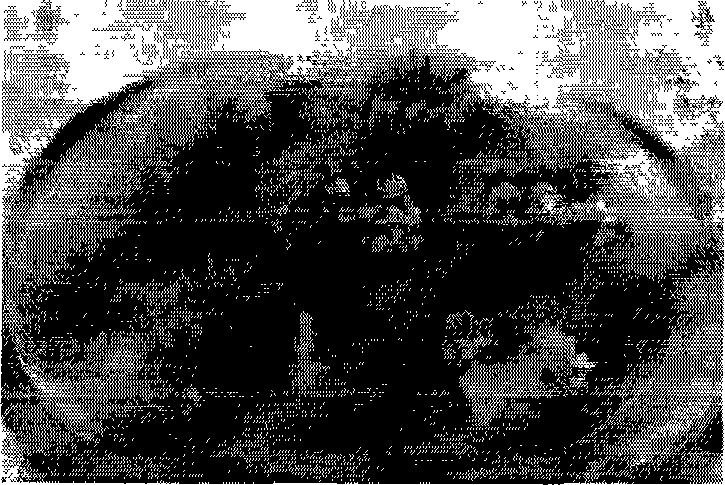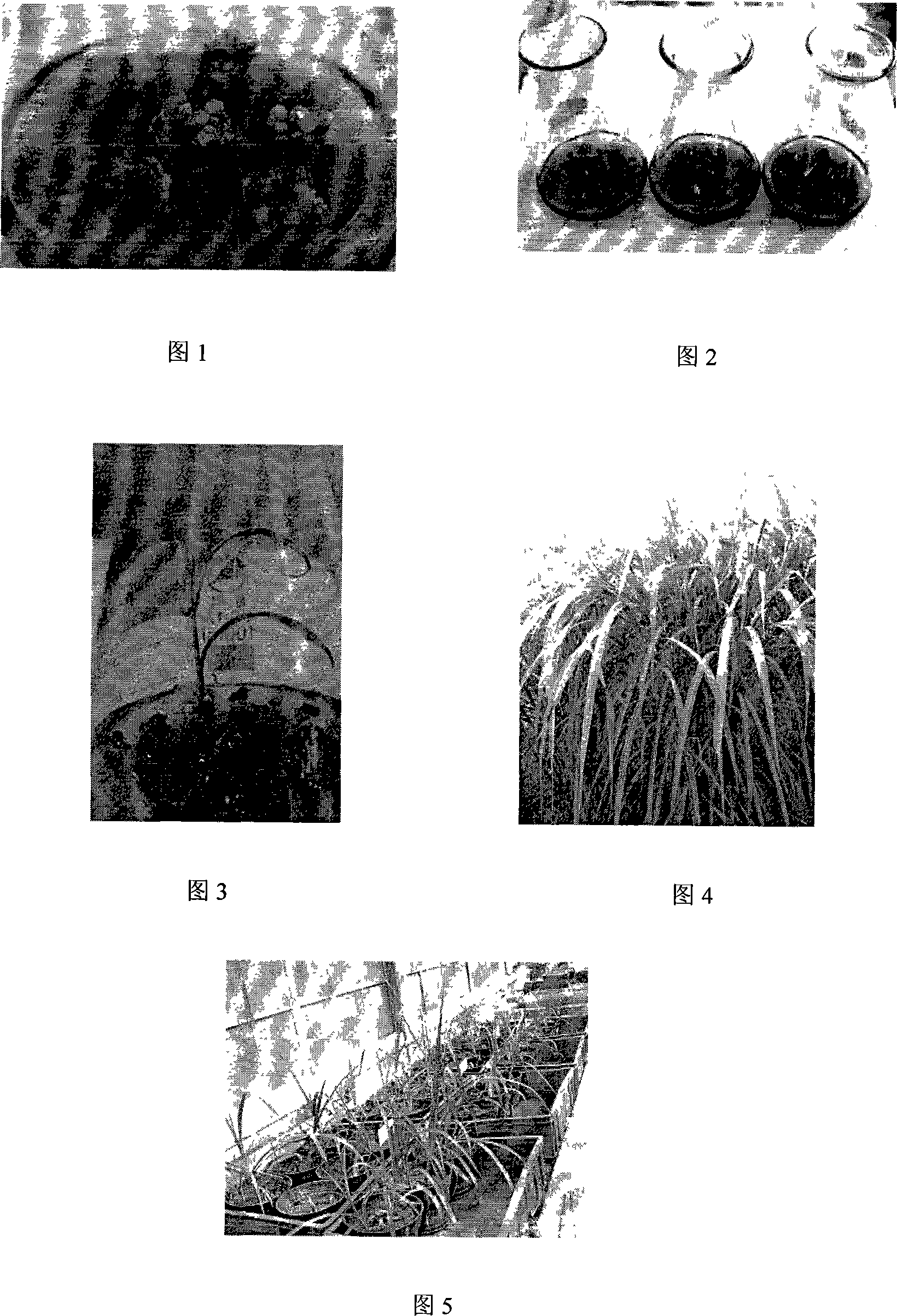Method for exsomatizing screening grassiness salt resistsomatic mutation body
A technology of somatic cell mutation and screening method, which is applied in the field of in vitro screening of elephant grass salt-tolerant somatic mutants, can solve the problems of different seed maturity stages, easy seed shattering and germination rate, etc., and achieves short cycle, easy operation, and selection high efficiency effect
- Summary
- Abstract
- Description
- Claims
- Application Information
AI Technical Summary
Problems solved by technology
Method used
Image
Examples
Embodiment Construction
1.3 NaCl stress screening
The granular callus cultured in the callus induction medium for 28 days was transferred to the callus subculture medium supplemented with 0, 10, 12, 14, 16, 18 and 20 g / L NaCl, and transferred to the supplemented NaCl after 45 days The same concentration of callus differentiation medium. After 35 days of culture, the seedlings with more than 3 leaves were transferred to the rooting medium without NaCl, and the green shoots were transferred to the callus differentiation medium containing the same concentration of NaCl, and the seedling rate was counted at 28 days. The seedlings were moved into a simple greenhouse after 28 days of growth, and the live tree rate was counted after 21 days of growth.
The temperature of the culture room is 26°C-28°C, the light intensity is 2000 lux, and the light is 16 hours a day.
1.4 Preliminary identification of salt tolerance of regenerated plants by screening tissue culture for salt stress
1.4.1 Preliminary ident...
PUM
 Login to View More
Login to View More Abstract
Description
Claims
Application Information
 Login to View More
Login to View More - R&D
- Intellectual Property
- Life Sciences
- Materials
- Tech Scout
- Unparalleled Data Quality
- Higher Quality Content
- 60% Fewer Hallucinations
Browse by: Latest US Patents, China's latest patents, Technical Efficacy Thesaurus, Application Domain, Technology Topic, Popular Technical Reports.
© 2025 PatSnap. All rights reserved.Legal|Privacy policy|Modern Slavery Act Transparency Statement|Sitemap|About US| Contact US: help@patsnap.com


